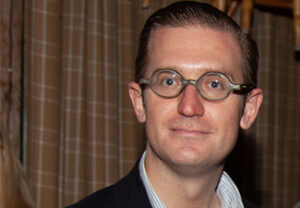
- This event has passed.
Kant & Post-Kantian German Philosophy Group Talk and Workshop (Andrew Huddleston, Warwick)
Thursday April 21, 2022, 3:00 pm - Friday April 22, 2022, 5:00 pm
Event Navigation

The Kant & Post-Kantian German Idealism Group is delighted to welcome as a speaker Andrew Huddleston, a professor of Philosophy at the University of Warwick. His areas of interest include the history of post-Kantian philosophy, particularly Nietzsche and the Frankfurt School. He is also interested in aesthetics, social philosophy, and ethics.
Talk Title
Affirmation, Admirable Overvaluation, and the Eternal Recurrence
Talk Abstract
In Beyond Good and Evil, Nietzsche writes with approval of “the ideal of the most high-spirited, alive, and world-affirming human being who has not only come to terms and learned to get along with whatever was and is, but who wants to have what was and is repeated into all eternity, shouting insatiably da capo–not only to himself but to the whole play and spectacle…” (BGE, 56). Yet chances are that if one flips to a random page from Nietzsche’s corpus of work, one will find it highly questionable whether he could ever be said to approach this ideal himself. His works are filled with complaints about and assaults on much of “what was and is:” morality, Christianity, democracy, Wagnerism, nihilism, Platonism, mediocritism, “Königsbergianism,” Socratism, German nationalism, Protestantism, décadence values, and the blight of the “last man,” to mention a few. This relentless emphasis on all that is wrong with the world can seem deeply ironic coming from someone whose ideal is apparently one of total affirmation and “yes-saying.” We thus appear to have two personas Nietzsche presents, one extremely satisfied, apparently wanting everything to be just as it is, and the other quite dissatisfied, apparently wanting a great many things to be eradicated, improved, or eliminated. Is this simply an irresolvable tension in Nietzsche? Is the Nietzsche who apparently would welcome the eternal recurrence of all things (“what was and is repeated into all eternity” (BGE, 56)) compatible with the Nietzsche who is a fulminating and trenchant critic of various ills of modern culture? In this paper I broach these issues by investigating Nietzsche’s celebrated and mysterious notion of the eternal recurrence and in particular by considering the evaluative stance—which Nietzsche appears to laud—of affirming the eternal recurrence of all things.
The talk will be followed by a workshop with Andrew Huddleston on Friday, April 22, 10:00 am – 5:00 pm (with breaks for lunch and coffee). The workshop will discuss a few chapters from Huddleston’s current book project, titled “Art’s Highest Calling: The Religion of Art in a Secular Age.” Please contact Dave Suarez if you are interested in attending and to receive the book chapters.
“Art’s Highest Calling” Short Blurb
This book project considers a theme in aesthetic theorizing and art-making, especially pronounced in German Romanticism and going through the 19th century and into the 20th century to certain key segments of artistic, literary, and musical modernism. An oft-expressed ambition is that art will somehow step in and fill the void left behind by waning religion. Huddleston explores variations on this theme to better understand some of the shapes this project of a “religion of art” took.
The Kant & Post-Kantian German Idealism Group is a a subgroup of the History of Philosophy Research Group, which focuses on European philosophy in Kant and post-Kantian traditions.
SHARE